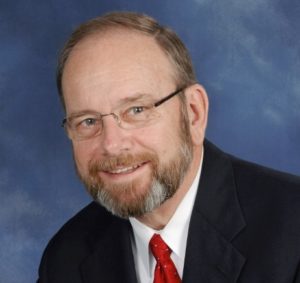Like most Americans, ministers and their families are facing exploding health-care costs.
And for many clergy, the resulting frustration and stress comes on top of the long hours and low pay associated with their callings.
Throw in the rising suspense around the uncertain future of the Affordable Care Act, to which ministers have increasingly turned for health coverage, and ministers and the experts who know them say there is a growing sense of pessimism and fear.
“They just see the inevitability of it,” says Mike Queen, a retired Baptist pastor and a consultant with the Center for Healthy Churches. “There is a sense that there is nothing they can do about it, and I think that’s true.”
Long-term, negative impact
Queen said he couldn’t pin down when the shift became so problematic. But the trend of churches moving the cost of benefits to ministers has reached alarming levels.
Queen, who recently retired from First Baptist Church in Wilmington, N.C., said he queried several congregations about how they manage staff health insurance.
He said more than 40 responded. Their answers ranged from continuing to offer full family coverage to getting out of the benefits business altogether.
The pressures on churches — especially small ones — are clear, Queen said. Decreasing benefits is usually more desirable than cutting ministries, missions and other programs.
All complained that health care is eating up their budgets.
But cutting back can have a long-term negative impact on congregations, Queen said.
Many of the young ministers that Queen mentors regularly express shock at the paltry health-care offerings provided by churches today — and how much it costs them — he said.
Pastors with a few years’ experience say any salary gains they have made have been eroded by health insurance costs that have been shifted to them. In some cases, the congregations are still paying for all or most of a minister’s premiums, leaving the pastor to find coverage for the rest of their family. In other instances, a minister is given a pay package and told to find all of their own coverage from that.
The fortunate ones may have a spouse with a job that provides coverage. Many don’t.
“In the last three months I have heard two ministers say I don’t know how much longer I can do this because their health insurance is now eating up 30 percent of their income,” Queen said.
 The Affordable Care Act hasn’t eliminated all those stressors.
The Affordable Care Act hasn’t eliminated all those stressors.
The act was designed to make health insurance affordable to Americans with low and moderate incomes. Plans are purchased through a marketplace, or exchange, where consumers can shop for coverage. Insurance companies are barred from denying coverage due to pre-existing conditions.
Many ministers have gone that route..
But now Donald Trump and Republicans in Congress have vowed to kill it. That would demoralize ministers who have relied on the ACA, and still face very high premiums and deductibles.
“They are fearful of an increase in premiums and are asking what happens if they repeal ACA,” Queen said. “That’s the stuff that keeps you awake at night.”
‘A drain on us emotionally’
Sleep can even be hard to come by even with the ACA in place.
The process of shopping for plans and subsidies is time consuming, confusing and, when family coverage is involved, pretty stressful.
“It took me what would be the equivalent of probably two-and-a-half days of work — mornings, afternoons and evenings — spread out over a couple of weeks” to find affordable insurance, said Chris Aho, pastor of Oxford Baptist Church, which is located about 30 miles northeast of Durham, N.C.
The church provides Aho’s health coverage, but not for his wife and two young sons.
“That was part of the deal coming in,” he said. “I have never resented my church for the arrangement.”
But it’s a lot of work and requires a lot of patience and creativity maneuvering through the system.
“It takes 20 hours to decide what the landscape is and how are we going to balance a higher or lower deducible with higher or lower premium,” he said.
“It is a drain on us emotionally and, potentially, spiritually.”
Aho said he can only imagine how much harder all of this will become if the Affordable Care Act is repealed.
“If the ACA goes away … then next year I will be in a more dire situation than I thought I was this year,” he said.
Eating up budgets
But even in settings where more coverage is provided, ministers and other staff are paying a greater share of their health insurance plans.
“What we have had to do is have employees assume a larger portion of our medical costs,” said Phillip Cannon, executive pastor at First Baptist Church in Dalton, Ga.
Those decisions have been very difficult ones for church staff committee members, who are torn between mushrooming costs and the desire to care for staff.
“I recognize the church cannot just continue to absorb the high cost of insurance,” he said.
One of the challenges congregations face is that churches do not have the clout to negotiate better insurance premiums and coverages, like government agencies and large companies do.
“I am sympathetic to my church,” Cannon said. “But it is an issue much bigger than my church.”
Queen said he knows churches are in a tight spot financially, and that health care is eating up budgets.
“But if you can’t provide benefits for your staff, maybe the issue is you have too much staff,” Queen said.
He added that it may also be the case that churches are trying too hard to emulate the business world, where the elimination of benefits is common.
“Sometimes we bring the corporate model … and apply it to the church,” he said. “I understand the pressure to meet budget and shrinking revenues.”
But churches are not businesses.
“It’s unfair to expect ministers to shoulder the full burden,” Queen said. “Churches ought to provide health care for their ministers.”




